There is no one cause for LGBTQ+ homelessness, but an alarming amount of people find themselves forced out of their family or community once their sexual orientation or gender alignment has been revealed – in fact, the Albert Kennedy Trust found that this was one of the main reasons young LGBT people leave home.
LGBTQ+ and homelessness
There is no one cause for LGBTQ+ homelessness, but an alarming amount of people find themselves forced out of their family or community once their sexual orientation or gender alignment has been revealed – in fact, the Albert Kennedy Trust found that this was one of the main reasons young LGBT people leave home.
Discrimination can also lead to poverty – particularly for trans people, who may be asked to leave (without adequate explanation) or forced out of their jobs because of their decision to transition. It can even start much earlier than that: bullying at school can make LGBT youth feel as though they don’t fit in, drawing them to “beacon cities” like Brighton, London or Manchester, with the idea that it could be where they belong due to their established LGBTQ+ communities.
“The problem with that is,” says Tina Wathern, Director of Education and Engagement at Stonewall Housing, “there’s a perception it’s going to be better to be LGBT and homeless in those regions because of the LGBT communities already there. But people travelling there for that reason don’t have the local connections, and the reality of that is without a local connection people are not eligible for any assistance."
For former Centrepoint resident Gary, he found himself forced to leave home after being outed by his cousin, who had read his diary and informed members of his family of his sexual orientation. “They told me they were going to contact my mum; that I was disgusting. Homosexuality was still illegal for under 21s at that point,” he remembers. He was also asked to leave his position as a Senior Sergeant at the Salvation Army for being gay. Too scared to tell his mother about everything, he ended up on the streets.
Violence against homeless LGBTQ+ youths
Rough sleeping on the streets can be particularly dangerous for members of the LGBTQ+ community. Offences against gay and lesbian people has doubled since 2014, and trebled against trans people – almost half of the latter (46%) in 2017-18 were violent offences. In terms of homelessness, The Albert Kennedy Trust found that LGBT youths are significantly more likely to experience targeted violence, sexual exploitation, substance misuse, and physical and mental health problems than any other homeless youth.
“A lot of violence that happens can be from other people on the streets,” Tina explains. "Plus, there can be high levels of transactional sex and the exploitation of vulnerable, gay men – it’s similar to the situations some homeless women find themselves in.”
The problem with hostels
For Gary, he quickly learnt that the best thing to do was to stay awake all night and sleep during the day. “I hung around Piccadilly a lot. There were a couple of sex workers there that looked out for me. One day, an outreach worker came up to us – he got me into the Centrepoint hostel. At the time, you were allowed to stay there for two weeks.”
The safe space that Centrepoint offered was a lifeline to Gary. During the day they gave him a list of day centres he could go to for advice and at night they offered him a refuge and the chance to be around other people like him.
But not all hostel or service environments are as positive. “Hostels and housing aren’t always sensitive to LGBT people’s needs,” Tina explains. “Trans women in women-only spaces, gay men being out in male-only hostel situations, finding access to hormones for trans people – these can be really difficult situations. So often, hostels aren’t perceived as safe spaces.”
The problem is, once in a vulnerable position, young LGBT homeless people are far less likely to seek support – and even if they do, the services they’re referred to aren’t always trained to deal with the issues that are specific to this community.
Tina says many LGB people will go back into the closet at hostels, and trans people will go ‘stealth’, reverting back to their birth gender in order to protect themselves. If LGBT people have experienced previous prejudice or transphobia, it can be incredibly difficult for people to engage with services: “In our Finding Safe Spaces research we spoke to a woman who was a drug user who was sex working but she was fleeing same-sex domestic abuse,” Tina recalls. “When they approached a domestic abuse service, the staff worker said, ‘You can’t possibly be in a lesbian relationship – you’re having sex with men, you must be heterosexual.... it’s that kind of bias we’re dealing with.”
LGBTQ+ training is a necessity
Gary remembers his time at Centrepoint fondly. “The people that I met there were a big influence on me,” he says. “I’m really grateful to Centrepoint – they helped me get off the streets and that was the first step. When I got to the hostel it also made me realise that there were a lot of us – so many of the young people there were gay or lesbian and I didn’t feel so alien any more. To be told you were OK, that was amazing.”
In order to help people like Gary, as well as other members of the LGBTQ+ community, move on, hostels and homelessness services need to be adequately trained so they can properly and efficiently help those who need it most.
Here at Centrepoint, staff members receive vital training from Tina.
“We talk about what it means to be LGBT. We unpick some of the jargon and think about unconscious bias,” she explains. “We go through case studies and why monitoring is important. Why it’s key that we understand sexual orientation or gender identity and how difficult that can be for organisations sometimes – how they struggle to ask those kinds of questions.”
It’s important that all services receive this kind of training, so that when the time comes, bias and prejudice can be challenged, the right language can be used, and staff can be confident in the knowledge that they’re creating a space in which someone can finally feel safe.
If you or someone you know is homeless or at risk, contact the Centrepoint Helpline on 0808 800 0661 (Monday to Friday, 9am-5pm) for free advice and support for 16- to 25-year-olds.
If you'd like to hear more about Stonewall Housing and the good work Tina does, visit their website.

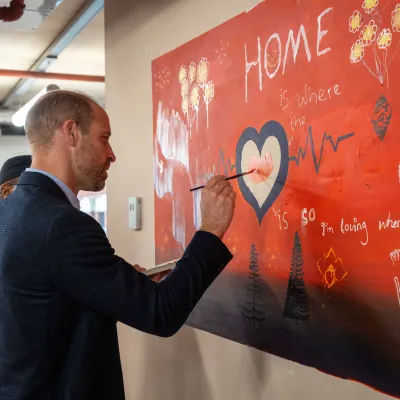
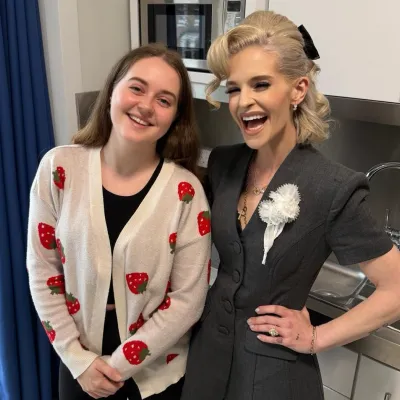
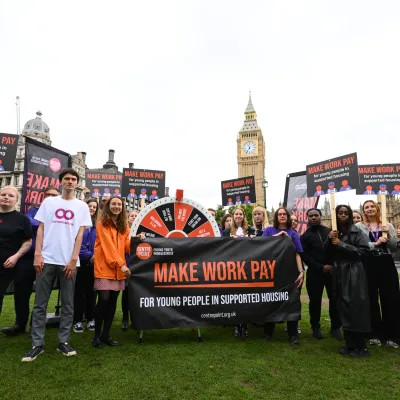
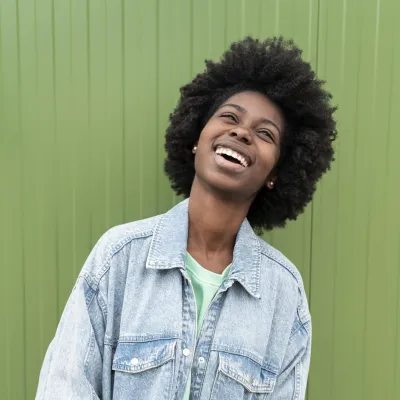
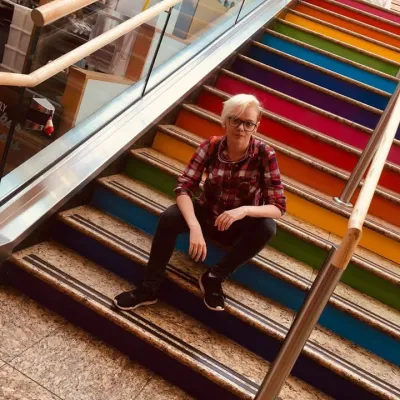
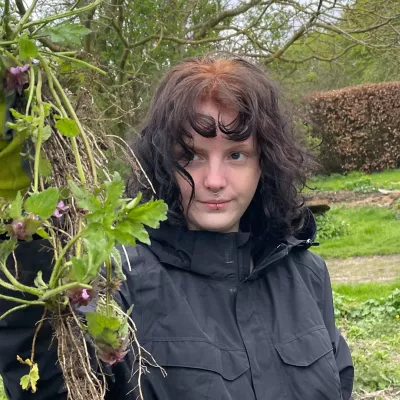 Tamsin Clements
Tamsin Clements